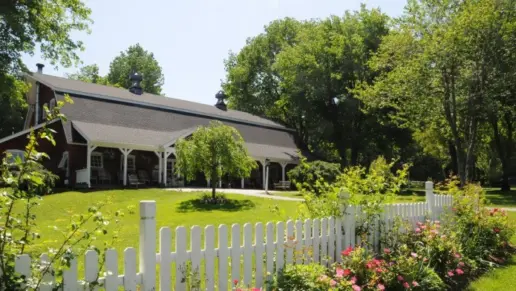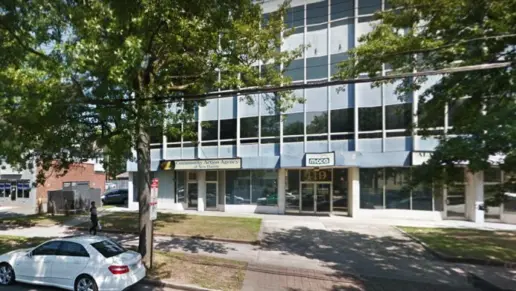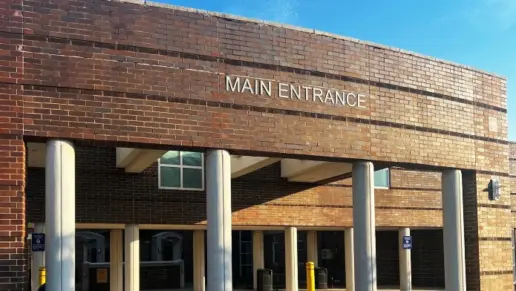This is a wonderful organization with strong values and convictions, they have a great program that will work. So thankful for what the staff here has done to help me.
About Wheeler Health – Hartford Family Health & Wellness Center
Wheeler Health - Hartford Family Health & Wellness Center is located in Hartford, Connecticut. They offer integrated primary care, mental health services and treatment for substance use disorders across all age groups. Their treatment options include general outpatient and intensive outpatient care.
They deliver quality and personalized care. This is evident from the beautiful comments from past clients. Their accreditation from the Joint Commission further confirms this fact. Their recovery programs are LGBTQIA-responsive and they offer several specific LGBTQIA-focused services as well. It’s especially convenient that they accept Medicaid, Medicare and various commercial insurance.
The treatment model for all their substance use recovery programs involves proven therapeutic practices like dialectical behavioral therapy delivered via group, individual and family sessions. Their outpatient substance abuse treatment for children and youths serves those aged 9 to 18 years. This focuses on early intervention, assessment/evaluation and recovery support. Intensive in-home treatment is available for adolescents and youths aged three to 24 dealing with co-occurring conditions. They also offer substance use recovery services for court involved youths.
Their adult recovery program incorporates medication assisted treatment for opioid and alcohol addiction. This evidence based technique uses FDA approved medicine and counseling to treat opioid addiction. The facility uses buprenorphine-based medicines, Brixadi and naltrexone for this purpose. These medicines curb cravings and minimize withdrawal symptoms. This allows you to undergo group and individual therapy. This comprehensive approach addresses the physical and psychological aspects of addiction. Their therapeutic activities are focused on developing solid coping skills, relapse prevention and life skill training.
This location also offers outreach and engagement programs for seniors over 50 with mental health/substance use disorders. This program involves assessment, addiction education, case management and referral to community health services. Slightly similar programs known as Women’s REACH are available for pregnant and parenting women with substance use or co-occurring disorders. Aftercare services may involve connections to their various community recovery resources for ongoing support. Comments from past clients reflect a positive experience and outstanding quality of care.
Latest Reviews
Rehab Score
Accepted Insurance
Other Forms of Payment
Medicaid is a state based program that helps lower-income individuals and families pay for healthcare. Medicaid covers addiction treatment so those enrolled can use their coverage to pay for rehab. When a program accepts Medicaid the client often pays very little or nothing out of their own pocket.
Private insurance refers to any kind of healthcare coverage that isn't from the state or federal government. This includes individual and family plans offered by an employer or purchased from the Insurance Marketplace. Every plan will have different requirements and out of pocket costs so be sure to get the full details before you start treatment.
Self-pay involves paying for treatment out of your own pocket. You can use savings or credit, get a personal loan, or receive help from family and friends to fund your treatment. If you don't have insurance or your insurance plan doesn't cover a specific program, self-pay can help ensure you still get the care you need.
Financial aid can take many forms. Centers may have grants or scholarships available to clients who meet eligibility requirements. Programs that receive SAMHSA grants may have financial aid available for those who need treatment as well. Grants and scholarships can help you pai for treatment without having to repay.
Sliding scale payments are based on a client's income and family size. The goal is to make treatment affordable to everyone. By taking these factors into account, addiction recovery care providers help ensure that your treatment does not become a financial burden to you or your family, eliminating one barrier to care.
Medicare is a federal program that provides health insurance for those 65 and older. It also serves people under 65 with chronic and disabling health challenges. To use Medicare for addiction treatment you need to find a program that accepts Medicare and is in network with your plan. Out of pocket costs and preauthorization requirements vary, so always check with your provider.
Addiction Treatments
Levels of Care
Treatments
The goal of treatment for alcoholism is abstinence. Those with poor social support, poor motivation, or psychiatric disorders tend to relapse within a few years of treatment. For these people, success is measured by longer periods of abstinence, reduced use of alcohol, better health, and improved social functioning. Recovery and Maintenance are usually based on 12 step programs and AA meetings.
Drug rehab in Connecticut provides the professional support that is often necessary to break free from drug dependency. With proper treatment, individuals can make changes that restore balance and health to their lives and achieve long-term recovery.
Many of those suffering from addiction also suffer from mental or emotional illnesses like schizophrenia, bipolar disorder, depression, or anxiety disorders. Rehab and other substance abuse facilities treating those with a dual diagnosis or co-occurring disorder administer psychiatric treatment to address the person's mental health issue in addition to drug and alcohol rehabilitation.
A combined mental health and substance abuse rehab has the staff and resources available to handle individuals with both mental health and substance abuse issues. It can be challenging to determine where a specific symptom stems from (a mental health issue or an issue related to substance abuse), so mental health and substance abuse professionals are helpful in detangling symptoms and keeping treatment on track.
Opioid rehabs specialize in supporting those recovering from opioid addiction. They treat those suffering from addiction to illegal opioids like heroin, as well as prescription drugs like oxycodone. These centers typically combine both physical as well as mental and emotional support to help stop addiction. Physical support often includes medical detox and subsequent medical support (including medication), and mental support includes in-depth therapy to address the underlying causes of addiction.
Programs


Clinical Services
Group therapy is any therapeutic work that happens in a group (not one-on-one). There are a number of different group therapy modalities, including support groups, experiential therapy, psycho-education, and more. Group therapy involves treatment as well as processing interaction between group members.
In individual therapy, a patient meets one-on-one with a trained psychologist or counselor. Therapy is a pivotal part of effective substance abuse treatment, as it often covers root causes of addiction, including challenges faced by the patient in their social, family, and work/school life.
Research clearly demonstrates that recovery is far more successful and sustainable when loved ones like family members participate in rehab and substance abuse treatment. Genetic factors may be at play when it comes to drug and alcohol addiction, as well as mental health issues. Family dynamics often play a critical role in addiction triggers, and if properly educated, family members can be a strong source of support when it comes to rehabilitation.
Amenities
-
Private Rooms
Accreditations

The Joint Commission, formerly known as JCAHO, is a nonprofit organization that accredits rehab organizations and programs. Founded in 1951, the Joint Commision's mission is to improve the quality of patient care and demonstrating the quality of patient care.
Joint Commission Accreditation: Yes
Contact Information
43 Woodland St
Hartford, CT 06105







